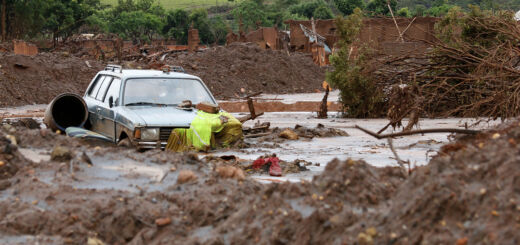Beyond UN Climate Change Conference (COP25)

One of the most compelling events held during these two weeks was the 5th International Tribunal on the Rights of Nature
In mid-October protests over a 30-cent increase in metro fares broke out in Santiago, Chile. Beyond the metro increase, the protests reflected long-standing economic and social inequality. In response to protests, Chile’s government declared a state of emergency and instituted a curfew. After these measures failed to quell protests, the UN Climate Change Conference (COP25) was moved from Santiago to Madrid.
Despite these changes, the Sociedad Civil por la Acción Climática, or SCAC, held events over two weeks to discuss climate issues with a focus on Chile and Latin America more broadly. Each day represented a different key issue such as water, loss of native species, or Indigenous and women’s rights.
One of the most compelling events held during these two weeks was the 5th International Tribunal on the Rights of Nature. The Rights of Nature Tribunals were created by the Global Alliance for the Rights of Nature (GARN) to create a forum from people around the world to speak on behalf of the environment. The tribunals gather experts in in law, policy, government, and the academe to take the cases presented to a higher forum and enact change. Three cases were presented to a tribunal of leaders from Latin America including lithium mining, water and mining threats to Patagonia including salmon fisheries, and water privatization in Chile. These cases were all accepted by the tribunal as threats to the rights of Nature. Along with the three Chilean cases, the fires in the Bolivian and Brazilian Amazon, and fracking in Argentina were presented for consideration by the tribunal. Each case was presented by those affected who articulated their struggle to survive and maintain their culture in the face of these environmental impacts, as well as experts who helped frame the situation.
In the case of the Amazonian fires, Nancy Yanez, the director of the Center for Human Rights at the University of Chile, was the presiding tribunal member. Pablo Solon (Fundación Solon, Bolivia), Vanessa Hasson (MAPAS, Brazil), and Germinda Casupa Paraba (Chiquitania, Bolivia) each presented on the impact of the recent fires on Indigenous communities and the environment throughout the Amazon. Pablo Solon focused on global trade networks that lead to increased deforestation. Vanessa Hasson focused on the Brazilian Amazon, the increase in fires due to lack of protections and enforcement, and their impacts on Indigenous people. The final and most compelling presentation from Germinda Casupa Paraba brought the fires to a personal level. Paraba recounted how her community, made up almost entirely of women and children (the men often leave for the city to work) was devastated by the recent fires. Through tears, she told the audience of over 150 about how she lost her house, her small farm, and all of her belongings. She stood in solidarity with several other members of her community.
After her testimony, the tribunal accepted the case. Next steps remain to be seen.




